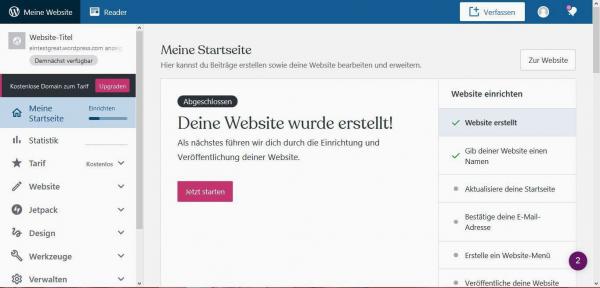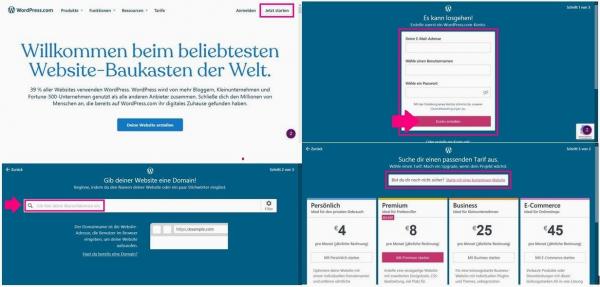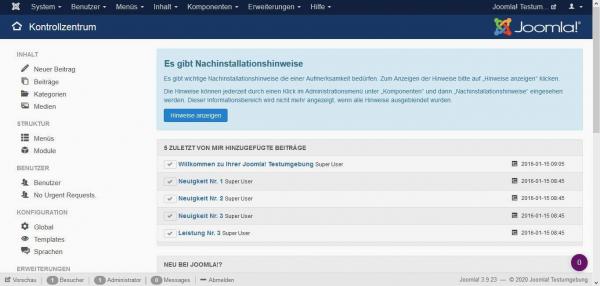Joomla and WordPress are content management systems that are well suited for creating a website. Both are free and have a lot in common - but they differ in a few ways. To make your decision easier, let's compare the two for you.
WordPress vs. Joomla: Many similarities
A content management system (CMS) is software that is used to create, edit and publish content. Often several authors are involved, whose actions are coordinated by the software. Joomla (proper name: Joomla!) And WordPress are the most popular free CMS when it comes to creating websites. Joomla was first released in 2005. It emerged from the open source CMS "Mambo" and is led by a management team and Open Source Matters, Inc., a non-profit organization in the USA.
Wordpress was originally programmed by the US web developer Matthew Mullenweg, appeared for the first time in 2004 and was initially intended specifically for blogs. It is supported by the WordPress Foundation, a non-profit organization based in San Francisco. Both WordPress and Joomla are licensed under the GNU General Public License , you do not need any programming knowledge for either ..
Otherwise, the two have a lot in common: Both can be used independently of the browser and have a large community . The latter is a great strength, because since the two CMS are open source programs, the many users can program and publish extensions for the CMS themselves. A large, public collection of plugins is available to you for both CMS - in addition to the already built-in templates for the design and structure of the website (templates or themes).
 The backend of WordPress is clear and intuitive.
The backend of WordPress is clear and intuitive. Differences: more popular, easier, safer
Getting started with Joomla and WordPress is quite easy and possible without CMS experience. However, WordPress is even more intuitive, the backend is kept simple and it offers the so-called "five-minute installation", after which you can get started immediately and create a website. WordPress is also by far the most popular CMS for website creation. WordPress has a good 60% market share - Joomla follows it with only a good 6%..
 Overview (from top left to bottom right): With WordPress you can start designing your website within five minutes.
Overview (from top left to bottom right): With WordPress you can start designing your website within five minutes. The market advantage of WordPress has consequences: On the one hand, this CMS has a larger community. Therefore there are more plugins and better support for this . On the other hand, success also has disadvantages, because the more websites are created with a CMS, the more interesting it is for hackers.
CMS decision depends on the goal
Which of the two CMS you should use ultimately also depends on what exactly you are planning to do. WordPress is well suited for blogs and smaller websites , which you can implement quite quickly with it. Joomla, on the other hand, offers more options and is also suitable for more complex page structures . Therefore, familiarization is a bit more difficult. In order to use the two CMS, you have to register on the respective website: Here you come to WordPress , here you come to Joomla .
 The backend at Joomla is a bit more complex - but you can also use it to create more complex pages.
The backend at Joomla is a bit more complex - but you can also use it to create more complex pages.